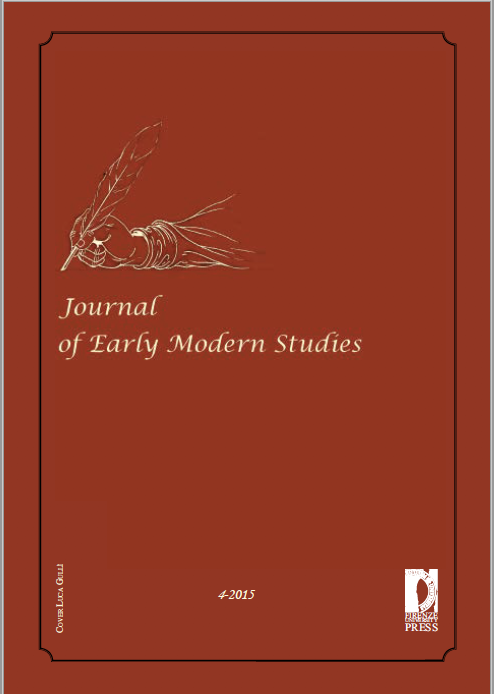‘Servant obedience changed to master sin’: Performance and the Public Transcript of Service in the Overbury Affair and <em>The Changeling</em>
Published 2015-03-02
Keywords
- Print Culture,
- Service,
- Seventeenth Century,
- Social History
How to Cite
Abstract
The article discusses allusions that Middleton and Rowley’s The Changeling makes to the murder of Sir Thomas Overbury by Frances Howard, Countess of Somerset, focusing particularly on the Countess’s servants. It draws on James Scott’s theory of the ‘public transcript’ of authority, which posits that subordinate members of society use rhetoric and performance to struggle for control over the significance of hierarchical political ideologies. The textual archive surrounding the Overbury Affair provides a view of this struggle. The State Trials accounts of the legal proceedings record the servants emphasizing their own vulnerability and ignorance of the crime in the hopes of securing either merciful treatment or punishment for their more powerful patrons. The ballad and pamphlet accounts of their statements minimize and erase these sentiments and instead emphasize the servants’ remorse for personal sins. The Changeling continues, and in many ways exaggerates the efforts to contain the performance of Weston and Turner, the Somersets’ servants, but in such a way that clarifies the stakes of the struggle. Rather than marking their entire narrative of service as threatening, the play identifies a savvy and deliberate performance of service alone as having a corrupting, nihilistic effect on the aristocracy and the broader social order.


